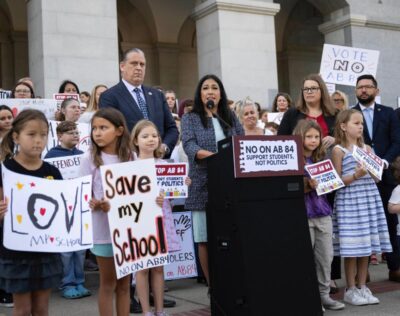Editor’s note: As 2023 draws to a close, The Signal is presenting CalMatters’ wrap-up stories on some of the key bills that reached the governor’s desk at the close of the 2023 legislative session. Here’s the CalMatters summary of Senate Bill 43, designed to expand the parameters for involuntary treatment of the mentally ill.
By Jocelyn Wiener
CalMatters Writer
Senate Bill 43 expands the legal definition of “gravely disabled” to make it easier to place someone into involuntary treatment.
The previously existing law was enshrined in the Lanterman-Petris-Short Act of 1967 and was intended to preserve the rights and freedoms of those with mental illness. It defines grave disability as meaning a person, as a result of a mental health disorder, is unable to provide for their own food, clothing and shelter or is mentally incompetent.
Under SB 43, the expanded definition of grave disability would also consider whether a person faces a substantial risk of serious harm by failing to provide for their own medical care or personal safety. It would include not just mental illness, but also severe substance use disorder and chronic alcoholism.
Who Supports It
The bill is supported by the Big City Mayors coalition, which includes mayors from the state’s 13 biggest cities; the California chapter of the National Alliance on Mental Illness, which represents family members of people with serious mental illnesses; and psychiatric associations. It was authored by Sen. Susan Talamantes Eggman, a Stockton Democrat.
Who Is Opposed
The bill is opposed by civil rights groups, including Disability Rights California, Human Rights Watch and the ACLU, among others. It is also opposed by the California Behavioral Health Planning Council, a state advisory body.
Why It Matters
The debate about expanding access to involuntary treatment by redefining “grave disability” has been raging in California for years. This is one of a series of bills that have attempted to modify the law in recent years. All of the previous attempts failed in the face of serious opposition from civil rights groups, among others.
A 2020 state audit of the Lanterman-Petris-Short Act determined that the law itself wasn’t broken; rather, the system to provide housing and services is.
CARE Court, the governor’s signature mental health legislation from last year, is an attempt to sidestep that debate. The initial cohort of counties rolled out their CARE Courts in October.
The governor has focused his efforts this year on revising the 20-year-old Mental Health Services Act, seeking to funnel more money into treatment and housing for people with serious mental illnesses and substance use disorders.
Governor’s Call
Newsom announced Oct. 10 he signed the bill. “California is undertaking a major overhaul of our mental health system,” he said in a statement. “The mental health crisis affects us all, and people who need the most help have been too often overlooked. We are working to ensure no one falls through the cracks, and that people get the help they need and the respect they deserve.”










